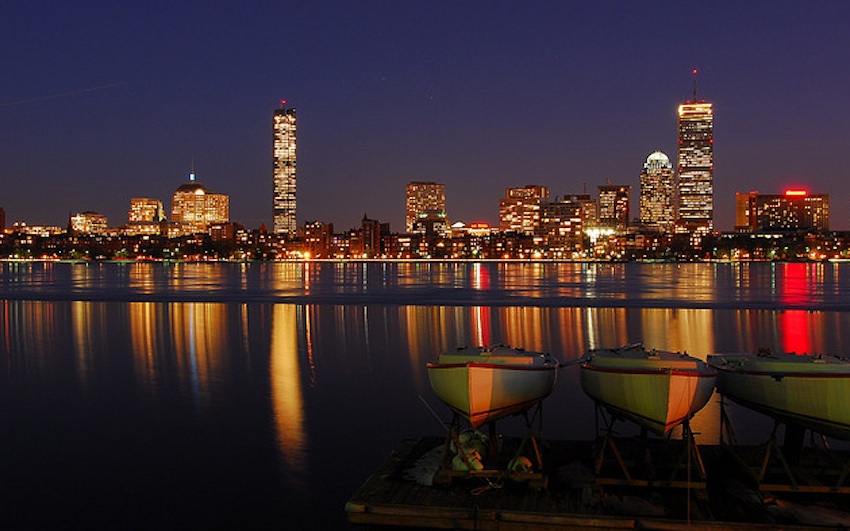Harvard Grad Student Doing Dissertation on Boston’s Dating Scene
A Harvard University student going for her P.h.D. is hoping to dispel some common myths about online dating, finding a suitable mate, and what men and women actually expect from each other when meeting for the first time. But in order to do that, she needs some more volunteers and residents to describe in detail what it’s like to go out and be single in Boston.
Holly Michelle Wood, 27, a graduate student studying sociology at Harvard’s school of Arts and Sciences, is writing her dissertation on “the modern trials of being single” in the city with an aim at cracking into what people emotionally experience in the dating scene when trying to find the perfect match.
Wood wants to uncover the truth about peoples’ trials and tribulations and look outside of the pre-packaged expectations she says are disseminated to singles through magazines, websites and movies. “I want to look at things like the transitioning into cohabitation, how people are dating, and whether or not it’s healthy. I don’t think many people are happy dating. It’s supposed to fun, but no one is really [thrilled] with the dating scene exactly,” says Wood. “Most of the expertise that is out there now is based solely on evolutionary psychology, or basic psychology…as far as a sociology standpoint is concerned, there hasn’t been any new research on it.”
She says the “big goal,” as a single female in her twenties, is to put an end to the recycled advice dating singles currently receive “We don’t have any real reasons proving that what people tell us is actually accurate,” she says. Her study will span over the course of the next year as Wood keeps tabs on subjects, frequently checking in with them, to gauge any shifts in their social dating lives.
The interviews are conducted in a “semi-structured format,” where “key topics” she is interested in, specifically how single people envision adulthood, marriage, sex and past relationships are examined. Under those topics, Wood narrows some research down to specifics, such as asking participants how important finding love is and how many hours a week they spend trying to find a mate.
Wood has conducted 30 private interviews so far, most of which were with women between the age of 25 and 35, so she is “desperately” trying to connect with more male subjects to compare and analyze dating data. So far, her interviews and compiled data have shown that most men in their twenties don’t want a serious relationship—something that isn’t a complete surprise. But it’s the trend behind it that has been particularly interesting to Wood.
The Harvard student says men approaching their thirties are more apt to look to settle down, but only once they have obtained certain amenities that build confidence in their personal lives. “If my hypotheses is true, men need to meet a measure of adulthood before wanting a serious relationship. But Boston is making it hard for them….because of living costs and the need for attainment of things like a place to live and a good job.
Wood calls this concept the “Adulthood Switch,” and says it’s common for males to suddenly turn-on to the idea of a long-term love interest with the potential for marriage only once they feel comfortable with their self identity. She is calling for more male volunteers in their thirties, however, to help better explain some her findings. “More interviews are always welcome,” she says.
As for the women of Boston, Wood says females seem to carry a sense of feminism that isn’t always respected by the men that they meet online. “Women have certain expectations for men to treat them with respect and treat them equal,” Wood says of the women she has studied so far. “The way men treat women at work is they way they want to be treated in the dating world. But there is a lot of history where women are sexualized and objectified. They can’t shed that, and that makes it very difficult for them.”
Recent “studies” like the ones Wood is trying to dispel, suggest that Boston is unsatisfactory for females when it comes to meeting “Mr. Right.” Similar studies released this year suggest Boston is better for men, according to one in particular from NerdWallet.com.
But Wood thinks it goes deeper than just short-term statistics. “There is certainly a gender-lopsidedness that is pretty high, but there must be a theoretical reason as to why,” she says. “[My dissertation] would be an explanation for it—something we don’t have now. I just can’t buy that men do one thing because they are cavemen, and women do another because they are crazy. I just can’t buy that.”
Both men and women between the ages of 25 and 35, that are interested in participating in the study, can contact Wood at courtshipstudy@gmail.com


